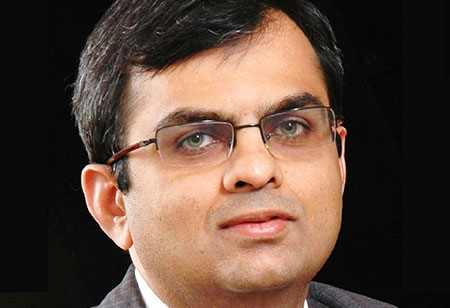By Anil Joshi, CEO, GCV Life

Anil Joshi, CEO, GCV Life
Indian Pharmaceuticals companies clocked revenues of about USD 30 BN last year, with equal contribution from domestic and exports markets. Both markets have shown a growth of around 15 percent. Exports are further divided into regulated, semi-regulated, and unregulated markets. India exports generic drugs to over 200 countries accounting for over 20 percent of global generics exports. The industry is undergoing a transformation representing a significant opportunity for consultants.
Indian Pharmaceutical Industry is Facing Several Short and Medium Term Challenges
Indian Pharmaceutical industry is facing significant threats and risks in international and local markets which go beyond revenue and costs forcing a business model review for many companies.
Acquire or Be-Acquired
Mergers & Acquisitions activity continues among the larger players like Teva, Mylan, and Allergan to achieve scale and size crucial for survival in the low margins generic drugs business internationally. Latest was an unsuccessful bid by Pfizer to acquire Allergan for over $113 BN. Indian generics companies face the same challenge. Even after the acquisition of Ranbaxy, Sun is still almost half the size of the top generics company (Teva) and other top players like Lupin and Cipla are much smaller and face the challenges more starkly.
Tightening of regulatory scrutiny for exports
Most if not all the large Indian exporters have faced adverse observations and export restrictions by USFDA owing to quality assurance issues. While the impact on overall revenue is in single digits, individual companies have lost significant shareholder value.
Ban on irrational combinations
Indian Pharmaceuticals industry has been proud if its ability to develop innovative Fixed Dose Combinations (FDCs) and has used that effectively as a differentiation strategy. On Mar 10, 2016, the Government of India issued prohibitory orders on the manufacture and sale of over 300 Fixed Dose Combinations (FDCs) resulting in an impact of Rs.3800 Crores on revenue. This ban has raised serious questions on differentiation strategies and even viability of several companies.
Drugs price control in India
What started as price controls over a small list of life saving and essential drugs has grown larger and larger with lucrative chronic therapies also coming under price control. The number of drugs under price control have grown to over 600, latest being generic Sofosbuvir for Hepatitis C. This trend represents a risk to growth and profitability.
Regulations challenging current marketing practices
Government has proposed to introduce Uniform Code of Pharmaceutical Marketing Practices (UCPMP) from 30 June 2016 and make it compulsory. This code will disallow several current marketing practices thus increasing the complexity and cost of compliance, and reputation risks arising out of violation.
Business environment changes in India
Significant other changes are looming on the horizon which over a period may significantly alter the business models and structure of Indian market. Some of these are:
•Distributor consolidation expected to accelerate after introduction of GST
•Large Healthcare provider establishing centralized purchasing models
•Expansion of Government into Healthcare through various schemes
•Opportunistic outsourcing of not only support functions but also Sales and marketing
•Changing tax environment and resulting shake down in manufacturing
•Backward and forward integration by players along the value chain e.g. API manufacturing being taken over by formulations companies, entry of distributors into retailing
•Online pharmacies and internet enabled models sales and marketing models
Current environment offers the best opportunity for consultants to make a lasting impact on the industry by offering a compelling value-price equation. Top themes playing out in the Indian Pharmaceuticals industry providing Management Consulting opportunities
Search for Growth
Top Indian companies like Cipla, Lupin, Sun and Strides have made significant foreign acquisitions in recent time to acquire capabilities and to enter markets. Similar trend is expected in the Indian market where the key concern is ensuring a solid presence in growth areas of future e.g. Injectibles, Chronic therapy areas, and Wellness. Opportunities exist in terms of not only assisting in the acquisitions but more proactively to assist companies in refreshing their Corporate Strategy and Roadmap.
Quest for Operational Excellence
As Indian companies grow in size and scale, their operating models need to undergo transformation to be effective and efficient without resorting to ‘Jugaad’. Technology and data enabled operating models are necessary to achieve this goal. Consulting opportunities exist in evolving new operating models that enable companies to straddle the at times divergent needs of exports as well local markets in terms of speed of delivery, quality and cost. Management by analytics needs to be institutionalized in the models and so do early warning systems for breach of compliance.
Desire to create world class organizations
As they grow in size and sophistication, companies need to create a culture of excellence that attracts and retains top talent. While Indian companies have been hiring global talent, they need to significantly transform their cultures. Human capital consultants can play a significant role in these transformations that will start from selling the need for such transformations to the top management of Pharmaceutical companies.
Consultants and industry can collaboratively overcome these challenges and win
Critical success factors for success in this journey are:
•Move from Incremental to Transformational
•Leverage global knowledge and experience to evolve Local solutions and best practices
•Customize solutions for each segment of the industry
Consultants and their clients working collaboratively can not only overcome current challenges but emerge out as winners!
We use cookies to ensure you get the best experience on our website. Read more...